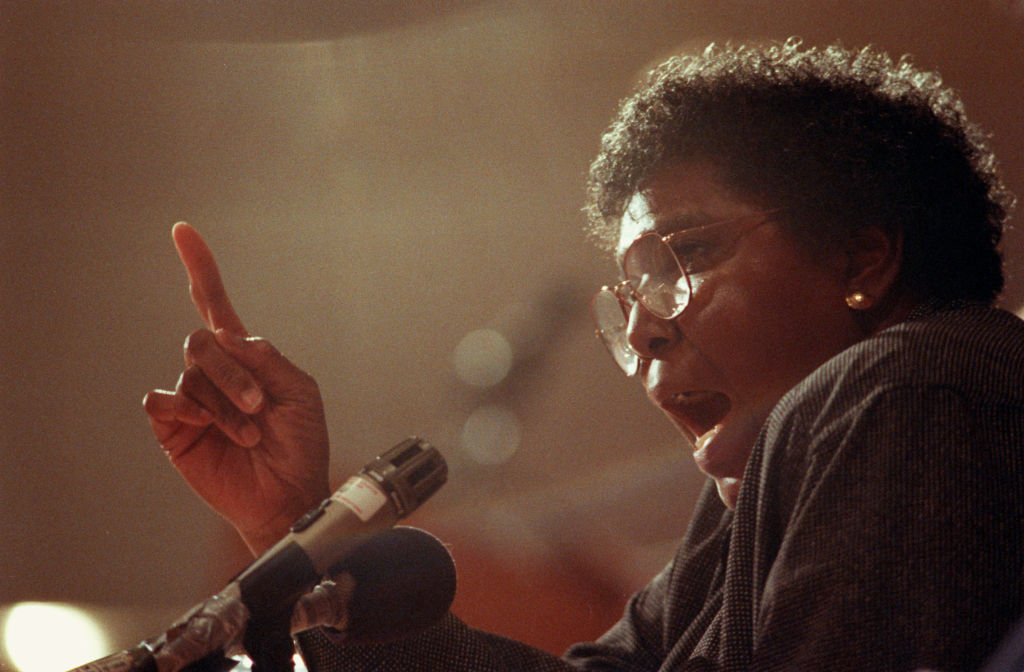A Deep Dive Into Misinformation And Influencer Impact On Black Men Voters

Source: kali9 / Getty
With less than 36 days until the 2024 Presidential Election, avoiding distractions, baseless claims, and detractors is crucial. This election cycle has been tumultuous– nothing short of a 50 Cent-produced TV drama. The incumbent president dropped out of the race; there have been two assassination attempts against one candidate and questions of race and identity of the other, a school shooting, an unjust execution of an innocent black man, blatant lies on a migrant community and a 920-page manifesto to topple democracy as we know it.
September, in particular, has been eventful. Missouri executed Marcellus Williams on Tuesday (Sept. 24) despite prosecutors clearing any DNA connection to the 1998 murder case.
Only three days earlier, The Guardian published an interview with Pop icon Janet Jackson in which she questioned the race of presidential hopeful Kamala Harris. The now 58-year-old singer, actress, and dancer has had a storied career and is no stranger to scandal. Her remarks during this interview have people floored. Jackson stated that Harris is not black and that her father is white, or at least that’s what she heard. Trump started the false claim about Harris’ race. The remark from Janet even surprised the reporter who asked how the singer felt about the possibility of the first black female president.

Source: DragonImages / Getty
Social media plays a significant role in elections. Facebook has faced criticism (again) for promulgating the spread of misinformation. The platform used to flag misleading posts with a visible tag and link to factual information but now is suppressing news altogether, making it harder for the truth to spread as quickly as intentionally incorrect information designed to appear authoritative.
In Texas, a Fort Bend County judge was indicted for posting racist content against himself in his own campaign on Facebook to earn sympathy votes. The posts came from a fake name.
The spread of misinformation needs to be addressed, and influencers and newspeople are taking a stance. Journalist Roland Martin made it clear to black men that their vote matters. He opens: “The six Supreme Court Justices that were named by Republicans, including Clarence Thomas, who is black, all voted to allow the execution of Marcellus Williams.” He went on, “For all the black men who are voting for Trump, or choosing to sit the election out, or saying ‘I can’t vote for a woman.’ Understand, this could be you.”
A 2024 Pew Research study estimates that Black Americans will comprise 14% of the electorate in the upcoming election. While Black women make up a higher percentage of female voters, Black men represent a smaller share of male voters overall. The numbers show that Black women tend to vote at rates about ten percentage points higher than Black men. What’s ironic is black men like John Lewis and Dr. Martin Luther King, Jr. led the voter registration movement in the1960 s.
MSNBC host Joy Reid not only admonished Jackson but also slammed other black celebrities and “Manoverse influencers” for endorsing Donald Trump, who as President has disparaged and shown in many cases contempt toward the black community, black men singularly. All I have to point to is the Central Park Five, now the Exonerated Five.
Alencia Johnson, former political advisor to the 2020 Biden-Harris campaign, highlights, “This is an example of how fast misinformation spreads rampant, and how it’s so important for us to combat it… especially in the digital space where pop culture and entertainment spreads a lot faster than truth and news.”
TikTok activist Chloe Telle has garnered almost 100,000 views for urging Trump apologists to stop spreading misinformation about Vice President Harris. She stitched a video where a black man claimed that Harris would’ve stopped Williams’ execution if she really cared for black people, even though a Vice President does not have that authority. Telle asserts, “I’m tired of black TikTokers getting online and spreading misinformation. You are doing the work of the White Supremacists.” She continued, “Black lives are not political pawns for you all to get clicks on here. If you want meaningful change… the first thing you all need to do is stop sitting out elections and saying ‘voting doesn’t matter.’”
Another TikTok creator, Kell Belle, has been reposted by celebrities like Questlove from The Roots and TV Executive Nicci Gilbert for criticizing popular online voices Tariq Nasheed and Dr. Umar. She asserts that these creators are exploiting the confusion, frustration, and misunderstanding of their target audience– black men.
“Everything is a conspiracy theory when you don’t know how [things] work,” she says. “If you would empower yourself to work the system to your benefit, then you would be winning, but you like being oppressed,” she said, suggesting that many black people are resistant to knowledge, facts and truth.
While Belle’s frustration is clear, I believe all hope is not lost. We can get more black men prepared to stand on the right side of history and show them the light, to remind them that their lives are at stake and their future rights are in jeopardy.
SEE ALSO:
Every Vote Matters, But Some Black Men Don’t Realize Their Power
Social Challenge Aims To Open Dialogue Around Prostate Cancer And Black Men
The post A Deep Dive Into Misinformation And Influencer Impact On Black Men Voters appeared first on NewsOne.


Post a Comment
0 Comments